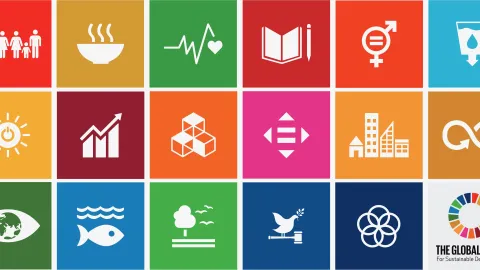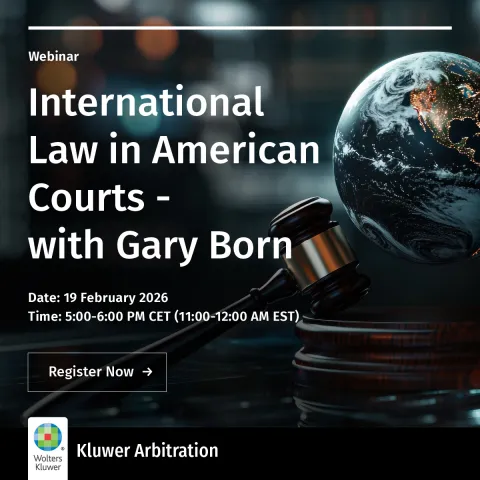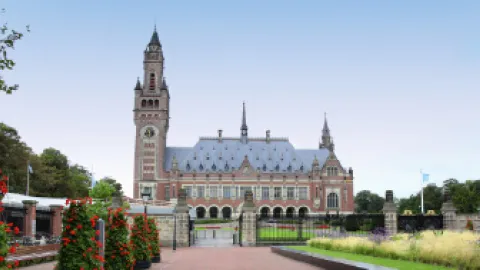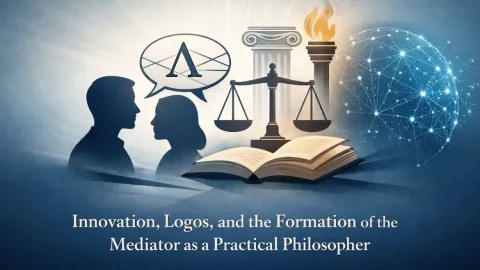Whisper It Quietly?
February 3, 2015
This is a blog I have shied away from writing. Several times. Even now, as I do so, I am wary of it. But here goes. I’ll come right out with it.
Very few women feature on the lists of “top” commercial mediators.
This year’s Who Who Legal World’s Top Ten features precisely….none. Seriously? Come off it.
Perhaps it was a mistake? Nope. Check out this year’s UK Legal 500. Three of the top twenty are women. This year’s UK Chambers Directory? Four of the top nineteen (though with a big shout for Frances Maynard who tops the list).
Now, I am no student of gender politics or history. And I don't think of myself as a feminist, or a misogynist, or any other relevant “-ist”. I'm not trying to make any of those points. I’m just a mediator. But I am a mediator who cares about our profession and who recognises that women seem to be grossly under-represented in its top echelons.
We can all speculate on the reasons, and we can all suggest responses. I intend to do neither. That is for sociologists, gender experts, historians, rights campaigners or whomever.
I simply want to do two things:
1. To say it out loud; and
2. To remind us that it is not so everywhere in the world.
When I first started working on mediation in Russia in the late 1990s, I found (to my great surprise, coming from the UK) that the majority of leading mediators whom I met were women. And then I found the same in Slovakia. And then again in Romania, Bulgaria, and Ukraine. And most recently in Belarus. And if I may speak frankly, I have witnessed courageous and visionary leadership on offer from the women mediators in those countries. They carry the hopes and fears of many on their shoulders, not just for the growth of a new profession, but for a better way of doing things in sometimes tough circumstances. They seem willing to counter the prevailing cultural wisdom in a radical and moving way.
Yes of course these are gross generalisations, not statistically-founded research outcomes. But they are still my very clear impressions.
At the highest political level, United Nations Security Council resolution 1325 (adopted 31st October 2000) “reaffirms the important role of women in the prevention and resolution of conflicts, peace negotiations, peace-building, peacekeeping, humanitarian response and in post-conflict reconstruction and stresses the importance of their equal participation and full involvement in all efforts for the maintenance and promotion of peace and security”. You could hardly wish for a clearer clarion call or statement of priority.
This year’s Coventry Cathedral International Peace and Reconciliation Prize went to Thérèse Mema Mapenzi from the Justice and Peace Commission in the Democratic Republic of the Congo, for her work with victims of sexual violence.
And of course we all know that Malala Yousafzai received the 2014 Nobel Peace prize, alongside Kailash Satyarthi.
I am not arguing for a particular answer or response. I am simply asking out loud whether the commercial mediation profession, at least in some parts of the World, is missing out on some much needed talent, and has something to learn from other areas of mediation and peace-making.
Of course in today’s politically correct world, one hardly dare argue some of these points or risk dipping a toe into the shark-infested waters of gender politics. One hardly even dare make reference to gender, along with race and creed.
On the other hand, sometimes these things just need to be said.
Reactions, please?
You may also like










Charlie Irvine
My incautious reaction from the hip is that it's all about the money. When I was a family mediator in the not-for-profit sector (hourly rate £12) I was surrounded by women - typically around 10% of mediators at training events were male. When I began to develop a workplace mediation practice (hourly rate anything from £40-150) I would estimate the proportion became roughly 50/50. Whenever I have dipped my toe into commercial mediation (hourly rate ?) I seem to meet mostly men in suits. Like you I can't offer a solution. On this and many other levels mediation seems to reflect the society of which it is a part.
Joy Borum
As someone who co-led consciousness raising groups last century, taught assertiveness training to women and men, was the only woman on the county board of supervisors, and on-and-on-and-on, I say I hope I live long enough for all girls and women to be assumed to have the same equality, potentialities, quirks, challenges and value as boys and men. And thank you for writing this though it need not be a whisper IMHO. Oh, and yes, Charlie, thank you, the money is also a biggie issue. Thank you, also.
Deborah Rothman
As bad commercial mediation is for women, it's much worse in commercial arbitration. I published an article in the ABA Dispute Resolution Journal a couple of years ago in which I cited some statistics and posited some explanations, and I'd be happy to post it here, or send it to whoever would like to look at it. Interestingly, I concluded that the time is still not ripe for women neutrals to expect support from women litigators, who are still trying to get in the game and don't want to call attention to their gender by going against the prevailing norms of neutral selection. It's a sad state of affairs. Even Wall Street--which I always thought would be the last bastion of gender discrimination--has cleaned up its act
Tanu Mehta
I can't say for the West, but in India, commercial matters, whether in litigation, arbitration or even mediation, tend to go to men. Probably because they are seen and heard everywhere. They are in Courts, in Bars and Pubs, in Parties, in Golf Courses, in Flights and Airports, in offices after work times, just everywhere. Women lose out because they end up going home for family after work and not doing general P.R. Men do it all the time because they are free. Secondly, women , overall, do not tend to be overwhelmingly pushy about big money. But when it comes to work , they are no less. They work hard and volunteer for all the causes and meaningful issues. So yes, I suppose I agree with Charlie Evine that women work more for the cause than for the money.
Michael Mcilwrath
Bill, while I cannot disagree with the point about gender disparity, I will take issue with these lists as a basis for demonstrating the extent of the problem. If a list requires payment of a fee to be included, for example, then gender disparity simply means that men were more willing to pay to be featured, not that they are better mediators or more highly regarded in the market. Or if the list is one in which parties/corporate counsel are asked to provide opinions, typically it is the professional being evaluated who provides the name of the parties to be queried. Obviously, they don't refer list-makers to any parties who were unhappy. (Also there is no science in whether the queried parties are qualified to provide views, or whether they have had more than one experience on which to form their opinions...) So, again, the list may say more about an ability to self-promote than genuine reputation or skill. Finally, none of the lists, as far as I am aware, purport to verify the number or types of mediations that mediators may claim to have conducted.... Again, not to deny there is a problem in gender in disparity, just that lists that are not based on objective methods of data collection or reliable feedback from parties are of dubious value in reaching any sort of conclusions.